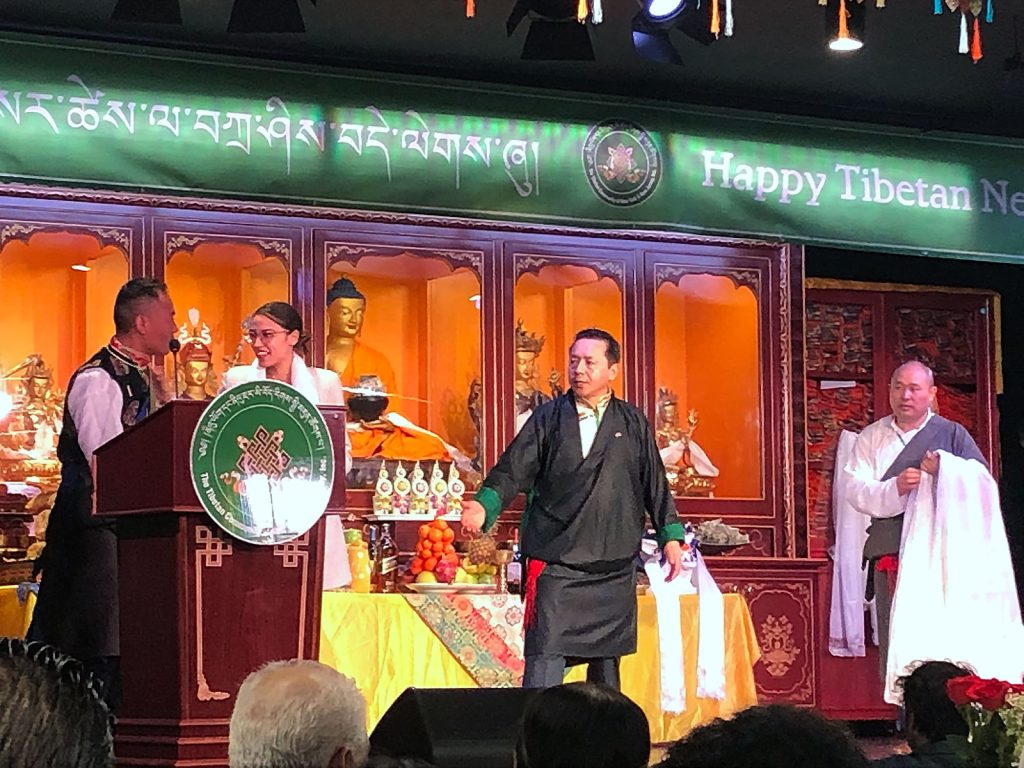Nothing is permanent, so everything is precious. Here’s a selection of some happenings—fleeting or otherwise—in the Buddhist world this week.
Mindfulness on the Floors of Parliament
In the UK, 220 parliamentarians and 450 members of their staff have received mindfulness training since 2013, according to Member of Parliament Chris Ruane (Vale of Clwyd, Wales). Ruane brought the issue up at a House of Commons meeting on February 13 in a question to Prime Minister Theresa May about whether she would seek to expand the initiative. Ruane, who is the co-chair of the mindfulness program that has been offering the classes, asked May if—after Brexit negotiations were over—she would be willing to meet with “senior scientists” to “look at what more can be done with mindfulness to reduce human suffering and promote human flourishing.” May sidestepped the question, but recognized that mindfulness-based cognitive therapy has been recommended by a government health agency for the treatment of depression. (Members of Parliament have employed mindfulness to this end.) May added that “commissioning of psychological therapies” was a matter for the National Health Service but that she would “ensure that they are aware.” Before moving on, Speaker of the House John Bercow quipped that mindfulness appeared to be working for Ruane, who he said is a “very calm and phlegmatic fellow these days, which wasn’t always the case.”
Mindfulness in Schools Critics Claim Victories
The American Center for Law and Justice (ACLJ), a conservative Christian group that has been fighting to eliminate mindfulness programs in California public schools, said in an update that their campaign has led one elementary school to agree “not to implement any mindfulness programs into the everyday curriculum” and another to re-evaluate the program. The ACLJ—which was founded by controversial Christian fundamentalist Pat Robertson and whose chief counsel is President Donald Trump’s attorney Jay Sekulow—has been sending “demand letters” to schools urging them to drop their secular mindfulness curriculums. The ACLJ argues that the programs amount to the “religious indoctrination of schoolchildren in the practices of Buddhism.” The latest statement claims, “Mindfulness meditation is to Buddhism what prayer is to Christianity,” citing an article by Indiana University professor of religious studies Candy Gunther Brown that makes a more nuanced argument about some meditation practices being “similar” to prayer.
Related: Does Mindfulness Belong in Public Schools?
AOC Reps Lovingkindness
At a celebration of Losar, the Tibetan lunar new year, in her Queens district on February 9, Democratic Rep. Alexandria Ocasio-Cortez said that she wants to see more Buddhist values like lovingkindness in Congress. “Lovingkindness and . . . compassion is not something that we wait to happen,” she said, “but it’s something we have a duty to create and establish through our actions every day . . . I am so excited to work with the Tibetan community and translate those values into Washington, DC, and into the laws of our land.” The two-hour event, which was hosted by the Tibetan Community of New York and New Jersey, also featured cultural performances and speeches from activists and other local leaders.
Memorial for Bernie Glassman
On Sunday, February 17, Zen Peacemakers International and the nonprofit Greyston Foundation will hold a memorial service for their founder, Bernie Glassman, who died in November. The service will be held at the Greyston Foundation building in Yonkers, New York, from 1:00–4:30 p.m., and members of the public are welcome to attend and pay their respects to the influential Zen teacher and activist. Glassman’s wife, Roshi Eve Marko, wrote in an open invitation message, “For over 50 years, Bernie brought us together. Jews, Buddhists, Christians, Muslims, bakers, child-care workers, musicians, teachers, construction workers, everyone. No one was excluded . . . On February 17 is our opportunity to come together once again to remember Bernie.”
Thank you for subscribing to Tricycle! As a nonprofit, we depend on readers like you to keep Buddhist teachings and practices widely available.
